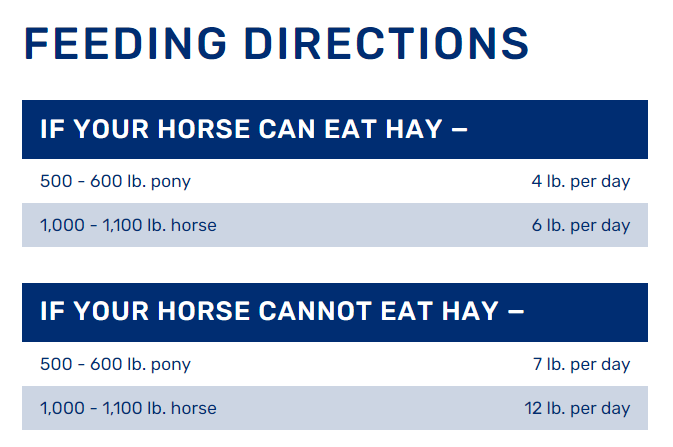Just some random thoughts: Older horses get tired of eating the same thing day in and day out, for years on end, and one day, they just stop eating it and that’s it. You can disguise it with oil and molasses, etc, or do some research and make a switch. I’ve actually done both. Switching is easier on those feeding the horse. I would suggest making a 1-800 call to the nutritionist of the brand your vet recommended and discuss the feed options they have that would fit your situation. You would be looking for calorie count, fat and fiber count per pound of the feeds (high fat, high fiber, high calorie). Being me, I would then take it a step further and look at competing brands being sold in your area, and make a few more phone calls to make sure I was getting the best fit possible for my horse.
I fed TC Senior for years. It works. The TC Gold Version works even better. What also works in the NY/New England area is Poulin ETEC Fibre Max–a close recipe to TC senior, but less expensive that Triple Crown because it is locally milled. One pound of grain across two feedings per day is not a lot of grain and may not be meeting your horse’s caloric needs, Follow the manufacturer’s feeding suggestions. TC Senior and Poulin Fibre Max are beet-pulp based feeds and do not contain corn, oats or barley in their content. They are made with molasses, but due to the lack of actual grain in their content, their NSC is fairly low.
After switching to a more palatable grain product, another option would be to add a fat supplement like Cool Calories to your horse’s diet if your horse still needs more help… You can get this in SmartPaks, shipped to your barn, to be added to the feed by the staff. We have seen a big difference in weight gain by the OTTB’s recently off the track who are now in our barn with this product when the high fat/fiber/calorie feeds still can’t get the weight on. It works.
And another option to explore would be adding a prebiotic/probiotic-type of supplement to the food, designed to help maintain a healthy gut and help the horse more fully digest and utilize the feed and hay he or she is consuming. Probios has products for this, as does SmartPak, Gut, etc. My oldster has been on RationPlus for years, and now that they are discontinuing the product, he will be switching to one of the SmartDigest products once my last bottle of RP runs out. His diet is based on Poulin Fibre Max, he is fed 3 times a day, and we get plenty of compliments on his ability to hold his weight. He is 29 years old.
Good luck with your horse, OP!


